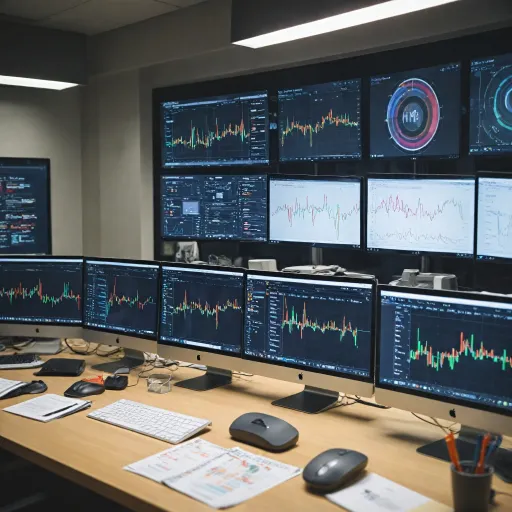
Understanding the unique demands of manufacturing roles
What Makes Manufacturing Roles Distinct
Manufacturing roles are not like typical office jobs. They demand a unique blend of skills and abilities, from technical know-how to strong attention to detail. In the manufacturing industry, employees must often operate complex machinery, follow strict safety protocols, and adapt quickly to changing production needs. This means that hiring managers need to assess candidates for both hard skills, such as mechanical aptitude and problem solving, and soft skills, like teamwork and customer service orientation.
When it comes to hiring for manufacturing jobs, traditional interviews may not be enough. Skills tests and manufacturing assessments can help measure a candidate’s ability to perform specific tasks. For example, a mechanical aptitude test can reveal how well a candidate understands machinery, while cognitive ability assessments can show their capacity to learn new processes or adapt to unexpected challenges. These assessment solutions are crucial in identifying manufacturing talent that fits the demands of the job.
- Technical skills: Operating equipment, reading blueprints, troubleshooting issues
- Soft skills: Communication, teamwork, adaptability, attention to detail
- Problem solving: Quickly identifying and resolving production issues
- Customer service: Ensuring product quality meets client expectations
Manufacturing assessments should be tailored to the specific requirements of each role. Pre employment testing can help assess candidates’ skills abilities before they join the team, reducing turnover and improving overall talent management. For more on building a technology stack that supports effective talent assessment, check out this resource on building an effective HR technology stack for analytics.
Key criteria for selecting assessment tools
What Makes an Assessment Tool Effective in Manufacturing?
Choosing the right assessment solutions for manufacturing roles means looking beyond generic tests. The manufacturing industry demands a mix of technical expertise, attention to detail, and the ability to adapt to changing environments. When evaluating assessment tools, hiring managers should focus on how well these tools measure both hard skills and soft skills relevant to the job.- Job Relevance: Does the assessment test skills and abilities directly linked to the manufacturing role? For example, mechanical aptitude tests are essential for roles involving machinery, while problem solving and cognitive ability assessments help identify candidates who can learn quickly and adapt to new processes.
- Validity and Reliability: Reliable manufacturing assessments consistently measure what they claim to assess. Look for solutions that have been validated for use in the manufacturing sector, ensuring fair and accurate results for all candidates.
- Ease of Use: The best assessment tools are user-friendly for both candidates and hiring managers. A straightforward testing process improves the candidate experience and streamlines talent assessment for HR teams.
- Comprehensive Evaluation: Effective assessments combine skills tests for technical abilities with measures of soft skills like teamwork and customer service. This balance is crucial for building a well-rounded manufacturing workforce.
- Scalability: As your manufacturing business grows, your assessment solutions should scale with you. Choose platforms that can handle large volumes of candidates and offer customizable assessments for different roles.
Comparing Assessment Solutions
There are many options for pre employment testing in manufacturing. Some tools focus on specific skills, such as mechanical aptitude or attention to detail, while others offer a broader range of assessments. When comparing solutions, consider how each one supports your hiring goals and fits into your overall talent management strategy. For an overview of alternative platforms and how they stack up, you can read this guide to competitors in HR analytics.Key Features to Look For
A strong manufacturing assessment tool should include:- Role-specific skills tests for technical and soft skills
- Customizable assessment options to match your job requirements
- Clear reporting to help hiring managers make informed decisions
- Integration with your existing talent management or HR systems
Integrating HR analytics into the assessment process
Leveraging Data for Smarter Manufacturing Assessments
Integrating HR analytics into the assessment process is transforming how organizations hire and manage manufacturing talent. By using data-driven insights, hiring managers can better assess candidates and employees, ensuring that the right skills and abilities are matched to the demands of manufacturing roles. Modern assessment solutions go beyond traditional skills tests. They combine data from multiple sources—such as pre employment testing, on-the-job performance, and employee feedback—to provide a holistic view of each candidate’s potential. This approach helps identify not only technical skills and mechanical aptitude but also soft skills like problem solving, attention to detail, and customer service orientation.- Data-Driven Decision Making: HR analytics enable organizations to measure the effectiveness of their manufacturing assessments. By analyzing test results and correlating them with job performance, companies can refine their assessment tools to better predict success in manufacturing roles.
- Personalized Talent Assessment: Analytics allow for the customization of assessment tests based on the specific requirements of different manufacturing jobs. This ensures that candidates are evaluated on the skills and aptitudes most relevant to their future roles.
- Continuous Improvement: Regularly reviewing assessment data helps organizations adapt their hiring strategies and assessment solutions. This ongoing process supports better talent management and helps maintain a competitive edge in the manufacturing industry.
Balancing technical and soft skills evaluation
Why Both Technical and Interpersonal Skills Matter
In the manufacturing industry, hiring managers often focus on technical skills and mechanical aptitude. However, successful manufacturing employees also need strong soft skills. Manufacturing roles require attention to detail, problem solving, and the ability to work in teams. Customer service, communication, and adaptability are just as important as operating machinery or understanding production processes.
Types of Assessments for a Balanced Evaluation
- Skills tests: These measure hard skills and technical abilities, such as using specific tools, reading blueprints, or performing quality checks.
- Cognitive ability tests: Assessments that evaluate problem solving, learning speed, and attention to detail. These are key for roles where quick thinking and adaptability are needed.
- Soft skills assessments: Tests that focus on teamwork, communication, and customer service. These help identify candidates who can thrive in collaborative environments.
- Situational judgment tests: Simulate real-life scenarios to measure how candidates handle workplace challenges, balancing technical and interpersonal responses.
Integrating Hard and Soft Skills in Your Assessment Process
To assess candidates effectively, combine different types of assessments. For example, a manufacturing assessment might include a mechanical aptitude test alongside a teamwork scenario. This approach gives a fuller picture of a candidate’s skills and abilities, helping you identify well-rounded manufacturing talent.
Assessment solutions that blend technical and soft skills testing are more likely to predict on-the-job success. When choosing pre employment tests, look for those that measure both skill sets. This ensures you hire employees who not only meet the technical demands of manufacturing roles but also contribute positively to your workplace culture.
Practical Tips for Hiring Managers
- Review job requirements to identify both technical and soft skills needed.
- Select assessment tools that offer a mix of skills tests and soft skills evaluations.
- Train hiring managers to interpret results from both types of assessments.
- Use assessment data to support ongoing talent management and employee development.
By balancing technical and soft skills evaluation, you improve your ability to assess candidates and build a stronger, more adaptable manufacturing workforce.
Practical steps to implement assessment tools
Setting Up Your Assessment Process
Implementing assessment solutions for manufacturing roles requires a structured approach. Start by mapping out the specific skills and abilities needed for each job. This includes both hard skills, like mechanical aptitude and problem solving, and soft skills such as attention to detail and customer service. Collaborate with hiring managers to ensure the assessments align with real-world job demands.- Define the roles and skills: Clearly outline the manufacturing roles you are hiring for and the key skills required. This helps in selecting the right assessment tests, whether you need to measure cognitive ability, technical skills, or soft skills.
- Select appropriate assessment tests: Choose skills tests and manufacturing assessments that are validated for the manufacturing industry. Make sure the assessments are relevant and can accurately assess candidates' abilities.
- Integrate assessments into your hiring workflow: Incorporate the chosen assessment solutions early in the hiring process. Pre employment testing can help screen candidates before interviews, saving time and resources.
- Train your team: Ensure hiring managers and HR staff understand how to administer and interpret the assessment results. This will help in making informed decisions about manufacturing talent.
- Communicate with candidates: Let candidates know why they are taking the assessments and how the results will be used. This transparency can improve the candidate experience and employer brand.
Ensuring Consistency and Fairness
Consistency is key when using assessments to evaluate candidates for manufacturing jobs. Use the same assessment test for all applicants to a given role. This not only ensures fairness but also makes it easier to compare results and measure the effectiveness of your talent assessment strategy. Regularly review your assessment process to ensure it remains relevant as job requirements evolve. Gather feedback from both candidates and employees to learn how the assessments impact the hiring experience and on-the-job performance. This ongoing evaluation helps you refine your approach and maintain a high standard in your manufacturing assessment process.Measuring the impact of assessment choices
Tracking the Effectiveness of Your Assessment Strategy
Measuring the impact of your assessment choices is essential for continuous improvement in manufacturing hiring. Once you have implemented assessment solutions tailored to the unique skills and abilities required for manufacturing roles, it’s important to evaluate whether these tools are delivering the expected results.- Monitor Key Metrics: Track metrics such as time-to-hire, quality of hire, retention rates, and performance of new employees. These indicators help determine if your manufacturing assessments are accurately identifying candidates with the right mix of technical and soft skills.
- Gather Feedback: Collect input from hiring managers and candidates about the assessment process. Are the skills tests and aptitude assessments relevant to the job? Does the process fairly evaluate attention to detail, problem solving, and mechanical aptitude?
- Analyze Post-Hire Performance: Compare assessment test results with on-the-job performance. Are employees who scored highly on cognitive ability and manufacturing skills assessments excelling in their roles? This helps validate your talent assessment approach.
- Review Turnover Data: High turnover among recent hires may signal a mismatch between assessment outcomes and actual job requirements. Use this data to refine your pre employment testing strategy.











